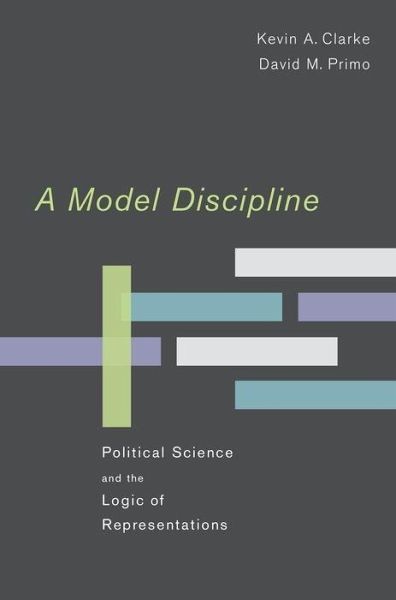
A Model Discipline
Political Science and the Logic of Representations

PAYBACK Punkte
33 °P sammeln!
Political science is an intensely quantitative discipline, and models are central. Political scientists use models--formal and informal, statistical and qualitative--to investigate and illuminate causal mechanisms, generate comparative data, and understand the conditions under which certain outcomes are expected to occur. But even though the use of models has grown dramatically in the discipline, there is very little understanding among political scientists of the role or function that models play in the scientific enterprise more generally. Moreover, theoretical models and empirical models ha...
Political science is an intensely quantitative discipline, and models are central. Political scientists use models--formal and informal, statistical and qualitative--to investigate and illuminate causal mechanisms, generate comparative data, and understand the conditions under which certain outcomes are expected to occur. But even though the use of models has grown dramatically in the discipline, there is very little understanding among political scientists of the role or function that models play in the scientific enterprise more generally. Moreover, theoretical models and empirical models have traditionally been treated as separate (hence the division between theorists and empiricists). Today, however, the emphasis is on using models to generate testable predictions that serve as hypotheses for subsequent data analysis. But how do we justify and rationalize the method? Why test predictions from a deductive, and thus truth-preserving, system? David Primo and Kevin Clarke tackle these central questions in this novel work of methodology. They argue that the lack of a suitable justification for model testing is not the only reason to revisit the role of models in political science. Most importantly, they contend that models should be seen as 'objects' and thus neither true nor false. Rather, they should be evaluated in the same fashion as models are evaluated in the physical sciences--good models are useful for particular purposes. Nothing more, nothing less. Divided into two parts, the book first establishes that no social scientific endeavor is philosophy-free. The second part focuses on different types of models, and closes with a framework for integrating theoretical and statistical models.



